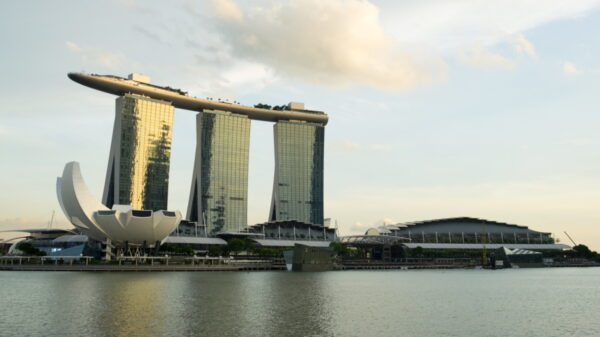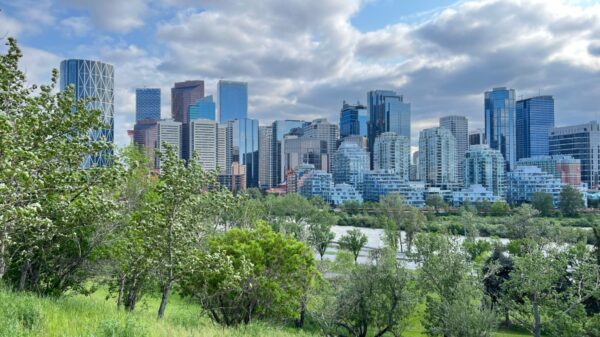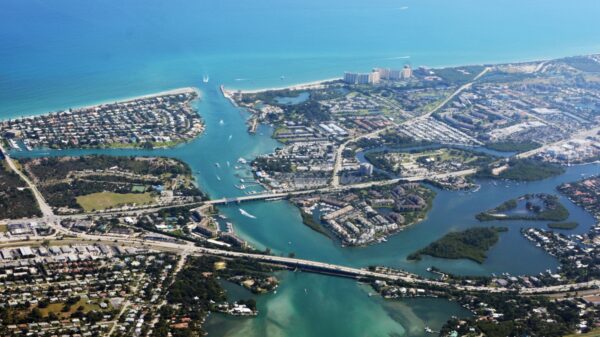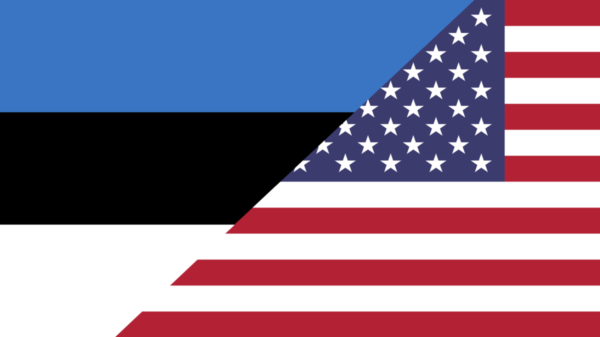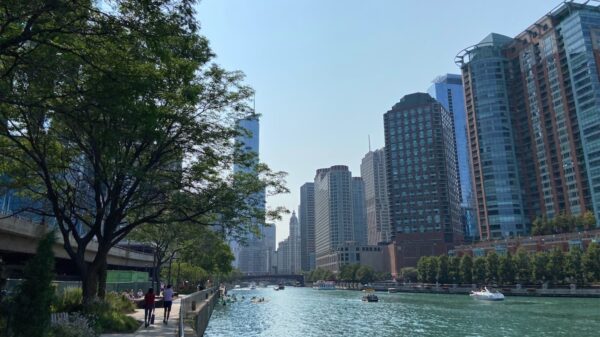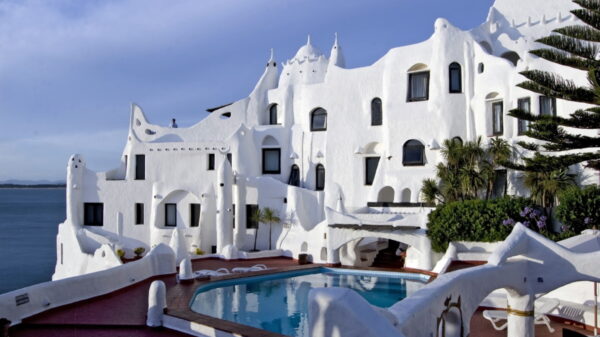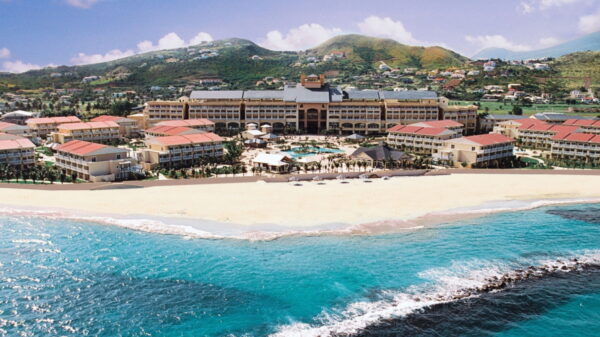Introduction
My name is Simon and I am the author of this course. I am originally from Canada and have been living the Zero Tax Nomad lifestyle for many years. Through this course, I share some of the knowledge I have acquired over thousands of meetings, years of business experience and a lifetime of living outside the box. While my focus is primarily on tax optimization, I also cover how to acquire a second passport, a new residency, how to register a business in another country, the best asset protection strategies, lifestyle hacking and long-term planning. My goal here is not to tell you “do that” but to make you aware of all your options so that you can make better informed decisions both in life and business. If you have any questions, you can send them my way via the red contact banner (large screens) / button (small screens).
This first module is about citizenship and the importance of positioning. Module two covers residency, module three covers business, module four covers assets protection, module five covers lifestyle hacking and module six covers long-term planning.
Citizenship: A little history
The very concept of citizenship first appeared thousands of years ago in the Greek city-states. Back then, citizenship was a tremendous privilege; It differentiated free men from slaves, women and barbarians. It was not the right that it is now and it could be revoked for a variety of reasons such as a change in economic status, a criminal conviction etc. Not only did it mark you as a free men of good economic status but it also gave you the ability to participate in public life. Such participation was seen as so important that even Aristotle famously said: “To take no part in the running of the community’s affairs is to be either a beast or a god!”.
The Romans took the Greek concept of citizenship and transformed it into an empire-building tool. They granted citizenship to a vast portion of the empire’s population and by doing so, they legitimized their rule over those they had conquered. They gave citizens rights, expectations and obligations. They made them feel Roman and they made them feel proud of being Roman. Most importantly for us, they created the idea that all citizens should be equals under the law.
In the thousands of years that have followed since ancient Greece and Rome, the meaning of citizenship has changed and evolved but this idea that citizenship entails participation in public life, equality and fair treatment has endured.
Today, multiple forms of citizenship exist. The most common being the national form of citizenship. In fact, it is so common that nearly everyone has such a form of citizenship. It is usually granted at birth but in most cases can also be acquired via other routes such as naturalization.
Another form of citizenship is that of a supranational organization. For example, the European Union. For people like us, the main benefit of such a form of citizenship is that it can provide a shortcut to the citizenship of another member of the organization. For example, if you cannot be bothered to go through the lengthy process of acquiring German citizenship? Get the Bulgarian one in two years instead and use it to live in Germany as an EU citizen. With the establishment of free movement within CARICOM and UNASUR, it is expected that the number of people in our community pursuing such form of citizenship will increase dramatically in the future.
There is also territorial citizenship. This is not a common form of citizenship and it only applies to a few countries. For example, Hong Kong and Macau. The citizens of these territories are full citizens of the People’s Republic of China but their right of abode is restricted to the territory in which the citizenship was issued (Hong Kong or Macau). They do not have the right to reside in the rest of the country even though they carry a Chinese passport.
Lastly, there is cultural citizenship. While fairly common, this form of citizenship is rarely useful and certainly not worth pursuing in the context of location independence. A good example of cultural citizenship is the Commonwealth of Nations. Citizens of member states get “some” benefits in other member states, such as the right to vote in certain types of elections.
Citizenship: Positioning
One of the main objectives of a long-term Zero Tax Nomad should be positioning. The logic is simple, with the rise of supranational organisations like the EU and UNASUR/MERCOSUR, it has become possible to acquire the right of abode for entire continents, often quite easily. For example, by becoming a French citizen one acquires the right to live and work in nearly every European countries. Similarly, someone acquiring the citizenship of Peru can expect to benefit from freedom of movement and equal opportunities in nearly all of South America as soon as UNASUR/MERCOSUR finalizes implementation (half-restricted freedom of movement is already possible).
This freedom of movement also opens the door to a number of interesting shortcuts. For example, it takes only two years to qualify for naturalization in Argentina instead of the 3-5 required in the other UNASUR countries. As such, someone could immigrate to Argentina with the intention of relocating to another UNASUR member-state once citizenship has been acquired. The same thing is also true in the European Union and the CARICOM where some countries sell their passports or run investment programs (see section 4.3).
As of today, four supranational organizations grant some form of freedom of movement to their citizens (or implementation is in progress). The European Union is by far the best known, the other three are NAFTA/USMCA, CARICOM and UNASUR/MERCOSUR. The benefits of having access to so many countries through those organizations are fairly obvious, imagine having the right to live and work in nearly sixty countries!
While most opt to go for only one new citizenship, it may interest some to know that it is currently possible to acquire citizenship in each of the organizations listed above in less than five years total (see section 4.2).
Now onto the more technical stuff. The EU offers full freedom of movement to all its citizens and even to its permanent residents (certain conditions applies). On the other hand, CARICOM and NAFTA/USMCA offer freedom of movement only to qualified professionals. Qualifying as a professional in a CARICOM member state is very easy and should not be a problem for most nomads. In NAFTA/USMCA countries however, only certain professions are eligible. They are: Accountant, Agriculturist, Animal Scientist, Apiculturist, Architect, Astronomer, Biochemist, Biologist, Chemist, Computer Systems Analyst, Dairy Scientist, Dentist, Dietitian, Economist, Engineer, Entomologist, Epidemiologist, Forester, Geneticist, Geologist, Geochemist, Geophysicist, Graphic Designer, Horticulturist, Hotel Manager, Industrial Designer, Interior Designer, Land Surveyor, Landscape Architect, Lawyer, Librarian, Management Consultant, Mathematician, Meteorologist, Nutritionist, Occupational Therapist, Pharmacist, Pharmacologist, Physician, Physicist, Physical Therapist, Plant Breeder, Poultry Scientist, Psychologist, Recreational Therapist, Registered Nurse, Research Assistant, Scientific Technician, Social Worker, Soil Scientist, Silviculturist, Teacher, Technical Publications Writer, Urban Planner, Veterinarian, Vocational Counselor, Zoologist. For US / Canadian citizens, no visa needs to be pre-arranged as TN status can be claimed directly at the border. For Mexican citizens, however, a TN visa has to be pre-arranged. TN status is valid for three years and can be renewed indefinitely. As for UNASUR/MERCOSUR, unrestricted freedom of movement has not been implemented yet. It has been approved by the South American parliament and a timeline has been set but given how slowly Latin American bureaucracy tends to move I would say that implementation even by 2025-2030 is unlikely. Currently, UNASUR/MERCOSUR citizens are granted a two-year work visa when moving to other member states and benefit from an easier pathway to permanent residency. Baring some major disaster, implementation will happen and considering the growth potential of the continent, I recommend including a UNASUR/MERCOSUR citizenship in your plan.
Adding depth
When planning a positioning strategy, it is also important to consider the far future. Circumstances change and a great option today may become a poor one tomorrow.
Population
The rate of population growth will affect everything in a country from quality of life to real estate prices to government policy and most importantly, to the economy. For example, a fast-growing population will present one with fantastic economic opportunities but several challenges in the form of resource stress, pollution and increased competition for school places, jobs, hospital beds etc. Fast-growing countries also tend to contract faster, once they have reached the top of the population pyramid, than slower growing countries.
Culture
Culture is another factor that you definitely cannot afford to ignore. It influences the way people behave and countries are run by people. Look for things like the national attitude towards work, politics, unions, debt, money, health, the environment, travel, corruption, education and leisure.
Economy
Considering the long-term economic prospects of a country is an obvious one. Look for things like debt levels, GDP growth over the last few decades, wealth equality, average salaries, taxation, average net-worth, house prices vs income, growth in retail and commercial space, the number of startups per capita, the number of businesses per capita, the number of patents per capita, reserves of natural resources, agricultural production, infrastructure, investments in infrastructures and English proficiency just to name a few.
Education
The way a country educates its people can greatly affect its future prospects. For example, a system of education which focuses mainly on memorization and discipline will produce a very different type of workforce than a system which focuses more on practicality and creativity. The Education index can provide some interesting insights but for a clearer picture I recommend getting in touch directly with local student groups and visiting universities in person.
Medical care
The quality of medical care is an important factor as it shows how efficient a government is at running a large, mission critical program. This is true even in countries like the United States where most of the medical infrastructure is privately-owned. You can read this OECD report for some insights into the future of healthcare in the developed world.
Crime
A high crime rate can be a deal breaker for many, for good reasons. Current violent crime rates are not necessarily indicative of future crime rates, however, and one can look at historical trends, social cohesion, gun prevalence, incarceration rates, rehabilitation methods and government policy to gain a better understanding of where things may go. The legalization of psychoactive substances and prostitution can also have a major impact on future crime rate (usually a positive one).
Citizenship: Taxation
While citizenship was initially created to enable participation in the affairs of state, it has since evolved increasingly into a tool of population control and tax collection. This brings us to the tax implications tied to citizenship.
There are currently three tax models in use. The citizenship model, the residential model and the tax haven model. There can be some overlap though and some countries use a mix of both the residential model and the citizenship model. In some cases, a high-tax country can also be a tax haven if certain conditions are met.
Mainly for practical reasons, the vast majority of countries use the residential model. I cannot cover every country in the world in this course but I will cover some of the most interesting ones. If a country you are interested in is not covered, simply let me know via the red contact banner (large screens) / button (small screens).
First of all, let us start with the countries using the citizenship model. The list is quite short, thankfully, as only two countries in the whole world use it. Eritrea and the United States.
What is the citizenship model? Let us cover the United States first. The way things works is fairly simple: if you are a citizen you are liable for taxation. Where you actually live does not matter. Even if you have never set foot on US soil you are still liable for taxation. In my opinion, this is clearly not a fair system but given the current political climate, it is unlikely to change anytime soon. There is, of course, the Foreign Earned Income Exclusion and the Foreign Tax Credit but it only applies to the first hundred thousand dollars or so (FEIE) or comes with severe restrictions (FTC) and in both cases, still requires you to file a tax return every year. It also does not cover all types of income.
In the case of Eritrea, things are a bit better. Citizens only have to pay a flat tax of 2% on their foreign income. This is still crap as far as I am concerned but is definitely an improvement over the US system where all income is taxed at the normal rate. Also, given the limited resources at the disposal of the Eritrean tax authorities, one could likely just ignore the tax and never get into any trouble (not what I would advise an Eritrean citizen to do obviously).
The second model is the residential one. The vast majority of countries using this model only tax their citizens if they maintain regular residential ties. The exact definition of “residential ties” vary from country to country but usually means spending 183+ days in-country, owning a permanent home, having a local job etc.
Let us start with my own country, Canada.
Canada does not tax its citizens if they maintain their domicile abroad. It is important to understand the difference between domicile and residency. A resident is someone who has been granted permission to remain in a country for a specific time duration, usually via a visa. A domiciled individual, on the other hand, is someone who considers that country their primary home, someone who intends to live there on a permanent basis. As such, to be exempt from Canadian taxation, a citizen has to establish a real home abroad instead of simply acquiring a foreign residency.
Australia, New Zealand and the United Kingdom all use similar systems. The way they assess someone’s situation differs, however. For example, the UK uses the Statutory Residence Test to determine whether a citizen is a tax resident. Australia and New Zealand uses a ties system which takes into account income, assets and family connections.
Scandinavian countries tax their citizens based on their physical presence but some also impose somewhat of an exit tax. Finnish citizens, for example, are taxed by Finland for up to three years after they move abroad, for Norwegian citizens, it is four. There are ways to lose the tax residency faster but qualifying is complicated and entirely up to the discretion of the tax authorities.
For most other EU countries, things are simpler. If you spend more than 183 days abroad and do not maintain strong ties to your home country, you lose your tax residency and only owe taxes on the income you generate there. If you generate no income there, no taxes are owed. There are caveats, however, such as Spanish citizens being taxed by Spain on their worldwide income for up to five years if they relocate to a blacklisted tax haven.
The last model is the tax haven model. There are two types of tax havens, the pure tax havens and the territorial tax havens. The pure tax havens do not impose any taxes on their citizens while the territorial ones only tax locally sourced income. To avoid the stigma that often comes with the pure tax havens, I recommended seeking the citizenship of a territorial tax haven. This can also help you avoid penalties often imposed on those moving to blacklisted tax havens. The most famous territorial tax havens are Hong Kong, Singapore, Malaysia, Panama, Paraguay and Costa Rica with the latter three offering the easiest path to citizenship (do note that to qualify, you will actually have to live there for a number of years so “easiest” is relative).
Dual or multiple citizenship and taxation
In the case where an individual has multiple citizenship, things can get complicated. Generally, income generated by a citizen is taxed locally regardless of residential status. Double Taxation Treaties can often be used to prevent the same income from being taxed twice but they are not available for every country pairs. In the case of the United States, income generated worldwide is taxed regardless of whether the taxpayer has citizenship in the country where the income is generated. A credit for taxes paid in the country where the income is generated is usually granted by the IRS, however.
Citizenship: Your options
Before teaching you about your options, I have a duty to warn you that acquiring a new citizenship is usually a complicated, multi-year process. The most desirable countries tend to be less than optimal from a tax and immigration perspective so there is a fair chance that you will end up living in a less than ideal country for a few years. It may or may not be worth it for you. In my opinion, it really boils down to how many sacrifices you are willing to make and how much you value the benefits that your new citizenship will offer.
The countries most compatible with the location independent lifestyle
Important: there are other tax havens but most do not allow for naturalization, do not allow for dual-nationality or make the process nearly impossible to complete. This module focuses on citizenship. For a list of the best residency options, consult the second module of this course.
Enter list and details here
The “Big Access” strategy
For those who seek access to as many countries as possible, the “Big Access” strategy is the way to go. It requires significant lifestyle sacrifices for up to five years and a moderate financial investment. Here is how it works:
1. Apply for citizenship in Dominica, Saint Lucia or one of the other CARICOM countries via an economic citizenship program. This requires a donation, usually starting at around 100000 USD and going up to nearly half a million USD and a number of personal visits to the country. The whole process takes up to six months and grants full citizenship and a passport. The process also grants full citizenship of CARICOM and as a result, freedom of movement in all member states (some of them are true tax havens, the Bahamas and St Kitts for example).
2. Apply for permanent residency in Bulgaria via the investor program. This requires a refundable investment of about half a million EUR and two visits to the country. The permanent residency is usually granted within six months and naturalization happens a year or two later. Two years after becoming a citizen, your investment is returned in full without interest. Bulgaria is an EU member and as such, Bulgarian citizens enjoy the right to live and work in all member-states.
3. Apply for permanent residency in Paraguay via the self-sustainability program. This requires the proof of a deposit of around 5000$US in a local bank or with the central bank. Permanent residency is usually granted within three months and is valid indefinitely. After three years, the applicant becomes eligible to apply for naturalization. Once citizenship is granted, the applicant gains the right to travel within South America with only an ID and full freedom of movement as soon as UNASUR/MERCOSUR finishes implementation. It is important to note that about half of the three years must be spent in-country and some local ties must be established for the citizenship application to be successful.
4. Apply for permanent residency in Canada via the skilled migrant program. This may require a job invitation and proper qualifications. Once the status is granted, four years must be spent in the country (half the year in Canada, half in Paraguay for the first three, half in the country of your choice for the last year). After four years, the applicant becomes eligible for naturalization and full Canadian citizenship. This grants the right to live and work in Canada as well as in the USA and Mexico under NAFTA/USMCA rules (TN status). If not eligible for the skilled migrant program, you could instead apply for the Quebec investor program. This requires an investment to be made in the province but it bypasses the need for a university degree and a job invitation.
Once those four citizenship are secured, you have the right to live and work in nearly sixty countries. This is obviously not an easy plan to implement but for those seeking to open as many doors as possible, it is very doable and takes around five years to complete (from start to finish). Steps can also be skipped for those already holding the citizenship of any of the four supranational organisations or if simply not interested in one of the regions.
Interesting shortcuts
France
If you hold the citizenship of a French speaking country (official language) and you attended a French-language school for at least five years, you are eligible for instant naturalization in France. The only condition is that you must be a resident of France at the time the application is made. This should not be a problem, however, thanks to the relatively accessible self-employment visa.
India
While not a true citizenship program, the Overseas Citizenship of India scheme offers nearly the same benefits as those granted to regular Indian citizens including the right to live and work in India indefinitely. To qualify, you simply need to have at least one Indian parent or grandparent. In some cases, you could also qualify by being married to an Indian citizen for at least two years.
Ireland
If you have an Irish grandparent, you are likely eligible for Irish citizenship thanks to Ireland’s citizenship through descent program. You could also be eligible if one of your great-grandparents was born in Ireland and one of your parents registered in the Foreign Births Register BEFORE you were born. The great thing about this program is that it is possible to apply remotely, there is no need to ever set foot in Ireland.
Israel
Thanks to the law of return, any Jew worldwide has the right to relocate to Israel and instantly apply for citizenship. This makes it a very attractive second passport for those of Jewish ancestry. It is also possible to convert to Judaism in order to qualify for citizenship. Please note that the conversion process can take up to two years and is quite involving. Do not try to “fake it”, this will not work.
Italy
Italy runs one of the most generous citizenship through descent program. All that is needed in order to qualify is to have one Italian ancestor. This can be as far as four generations up. As with the Irish program, it is possible to apply remotely. It is important to note, however, that every documents used to support the naturalization application must be translated to Italian and that the application process itself is very bureaucratic.
Republic of China (Taiwan)
The government of ROC (Taiwan) currently claims sovereignty over the entire Chinese nation, including the Mainland and even Mongolia. As a result, any Chinese is considered a citizen of the ROC (Taiwan), even those who have migrated to other parts of the world. This means that if you are Chinese, you can apply for a ROC passport today! That said, it is important to note that holding a ROC passport does not entitle you to live in Taiwan (A Taiwan Hukou is needed for that). Applying for a ROC passport could also land you in hot water with the Mainland government.
Future possibilities
There has recently been talks in Singapore of legalizing dual nationality. This follows the trend set by countries like Denmark and is aimed primarily at combating the demographic imbalance Singapore currently faces. If dual nationality is legalized, Singapore will become a very interesting second passport option. It has a fantastic taxation system, banking system, one of the best passports in the world and is a very stable, affluent country. As an added bonus, it is currently possible to apply for citizenship after only two years of permanent residency.
Citizenship: Renunciation
Renunciation is the voluntary act of relinquishing a citizenship and is different from de-naturalization, where the loss of citizenship is forced by a state. The vast majority of people who renounce their citizenship do so in order to qualify for naturalization in a new country. The cost and procedure vary depending on the country and in almost every cases, renunciation is only approved if the person can prove that they are in the process of being naturalized in another country. In most countries, the cost stand at around 100-300$ but in some it is substantially higher. The United States has the highest cost at 2350 USD.
It is important to note that once renunciation has been approved, it can be very challenging to regain the lost citizenship, even impossible in some cases. It is also important to note that depending on the reason you renounced your citizenship for, you may be unable to enter the country again. For those reasons, I strongly recommend avoiding acquiring the citizenship of a country that does not allow dual citizenship.
Citizenship: Trivia
Statelessness
According to the United Nations, a stateless person is “a person who is not considered as a national by any State under the operation of its law”. In most cases, the statelessness is due to administrative obstacles resulting from war or major political changes (the dissolution of the USSR for example). In some cases, though, the statelessness can be voluntary. There has been several cases of individuals renouncing their citizenship for either political or financial reasons. Garry Davis, best known as the founder of the World Service Authority, is certainly the most famous case.
It is important to note that statelessness is utterly incompatible with the Zero Tax Nomad lifestyle and that while the idea of becoming a “world citizen” may sound romantic, it should not be pursued. That being said, there are a few legitimate situations where one might become stateless by accident such as:
1. Certain countries do not accept dual citizenship. As such, someone applying for naturalization may be required to renounce an existing citizenship before being granted the new one. In this situation, the person effectively becomes stateless until the new citizenship is granted. This is normally not a major issue but there have been cases of people being denied naturalization after renouncing their citizenship effectively leaving them stateless. In some countries, failure to declare information during an application for naturalization may be ground for the withdrawal of citizenship also leaving the person stateless.
2. The other situation of import is the one concerning birth. Because of the way some countries grant citizenship to newborn babies, it is possible that one’s kid may effectively be stateless at birth. It is a fairly rare situation, though, and not one that affects most people. One example: in China, citizenship is granted on a jus sanguis basis. This means that adopted kids of non-Chinese decent may not be able to acquire Chinese citizenship even if their adoptive parents are both Chinese. Instead, they are usually granted permanent residency.
Multiple citizenship
Surprisingly, the vast majority of countries do not allow multiple citizenship or only do so under special circumstances. In some cases, it is possible to “fake” renunciation but in most cases, any existing citizenship has to be abandoned and proof has to be presented.
Here is a list of countries that allow multiple citizenship:
Antigua, Australia, Bangladesh, Belgium, Belize, Brazil, Canada, Chile, Colombia, Comoros, Cyprus, Dominica, Denmark, Ecuador, Egypt, El Salvador, Fiji, Finland, France, Greece, Grenada, Hungary, Iceland, Iran, Iraq, Ireland, Israel, Italy, Jordan, Latvia, Lebanon, Lithuania, Macedonia, Malta, Mexico, Montenegro, New Zealand, Peru, Pakistan, Philippines, Poland, Portugal, Russia, Syria, Thailand, Romania, Samoa, Serbia, Sri Lanka, St. Kitts & Nevis, Switzerland, Turkey, United Kingdom, United States of America, Vietnam, Western Sweden.
Unlock the entire course by joining the Insiders Club




